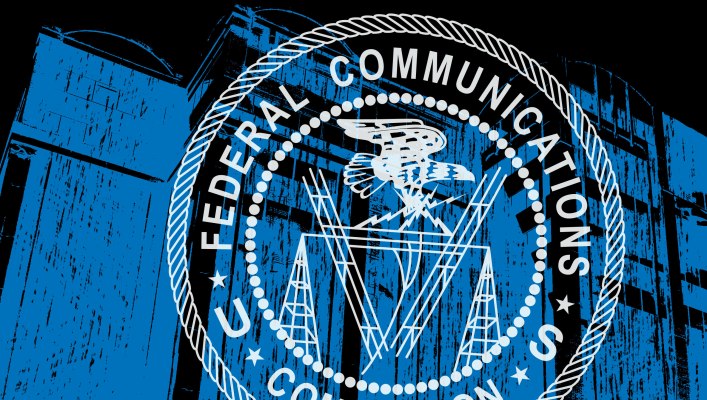FCC Chairman Ajit Pai has announced his intention to pursue a reform of Section 230 of the Communications Act, which among other things limits the liability of internet platforms for content they host. Commissioner Rosenworcel described the timing — immediately after Conservative outrage at Twitter and Facebook limiting the reach of an article relating to Hunter Biden — as “absurd.” But it’s not necessarily the crackdown the Trump administration clearly desires.
In a statement, Chairman Pai explained that “members of all three branches of the federal government have expressed serious concerns about the prevailing interpretation of the immunity set forth in Section 230,” and that there is broad support for changing the law — in fact there are already several bills under consideration that would do so.
At issue is the legal protections for platforms when they decide which content to allow and which to block. Some say they are clearly protected by the First Amendment (this is how it is currently interpreted), while others assert that some of those choices amount to violations of users’ right to free speech.
Though Pai does not mention specific recent circumstances in which internet platforms have been accused of having partisan bias in one direction or the other, it is difficult to imagine they — and the constant refrain from Trump demanding the “repeal” of 230, which is part of a large and important set of laws — did not factor into the decision.
A long road with an ‘unfortunate detour’
In fact the push to reform Section 230 has been progressing for years, with the limitations of the law and the FCC’s interpretation of its pertinent duties discussed candidly by the very people who wrote the original bill and thus have considerable insight into its intentions and shortcomings.
In June Commissioner Starks disparaged pressure from the White House to revisit the FCC’s interpretation of the law, saying that the First Amendment protections are clear and that Trump’s executive order “seems inconsistent with those core principles.” That said, he proposed that the FCC take the request to reconsider the law seriously.
“And if, as I suspect it ultimately will, the petition fails at a legal question of authority,” he said at the time, “I think we should say it loud and clear, and close the book on this unfortunate detour. Let us avoid an upcoming election season that can use a pending proceeding to, in my estimation, intimidate private parties.”
The latter part of his warning seems especially prescient given the choice by the Chairman to open proceedings less than three weeks before the election, and the day after Twitter and Facebook exercised their authority as private platforms to restrict the distribution of articles which, as Twitter belatedly explained, clearly broke guidelines on publishing private information. (The New York Post article had screenshots of unredacted documents with what appeared to be Hunter Biden’s personal email and phone number, among other things.)
“This is exactly what I didn’t want to happen,” Commissioner Starks told TechCrunch. “We should have both acted quickly and rejected the NTIA petition. Now voting has already started, the president is trying to work the refs, and this press release will look to many people like an attempt to help him.”
Commissioner Rosenworcel did not mince words, saying “The timing of this effort is absurd. The FCC has no business being the president’s speech police.”
Considering the timing and the utter impossibility of reaching any kind of meaningful conclusion before the election — rulemaking is at a minimum a months-long process — it is hard to see Pai’s announcement as anything but a pointed warning to internet platforms. Platforms which, it must be stressed, the FCC has essentially no regulatory powers over.
Foregone conclusion
The Chairman telegraphed his desired outcome clearly in the announcement, saying “Many advance an overly broad interpretation that in some cases shields social media companies from consumer protection laws in a way that has no basis in the text of Section 230… Social media companies have a First Amendment right to free speech. But they do not have a First Amendment right to a special immunity denied to other media outlets, such as newspapers and broadcasters.”
Whether the FCC has anything to do with regulating how these companies exercise that right remains to be seen, but it’s clear that Pai thinks the agency should, and doesn’t. With the makeup of the FCC currently 3:2 in favor of the Conservative faction, it may be said that this rulemaking is a forgone conclusion; the net neutrality debacle showed that these Commissioners are willing to ignore and twist facts in order to justify the end they choose, and there’s no reason to think this rulemaking will be any different.
The process will be just as drawn out and public as previous ones, however, which means that a cavalcade of comments may yet again indicate that the FCC ignores public opinion, experts and lawmakers alike in its decision to invent or eliminate its roles as it sees fit. Be ready to share your feedback with the FCC, but no need to fire up the outrage just yet — chances are this rulemaking won’t even exist in draft form until after the election, at which point there may be something of a change in the urgency of this effort to reinterpret the law to the White House’s liking.
![]()
Devin Coldewey
Source link



